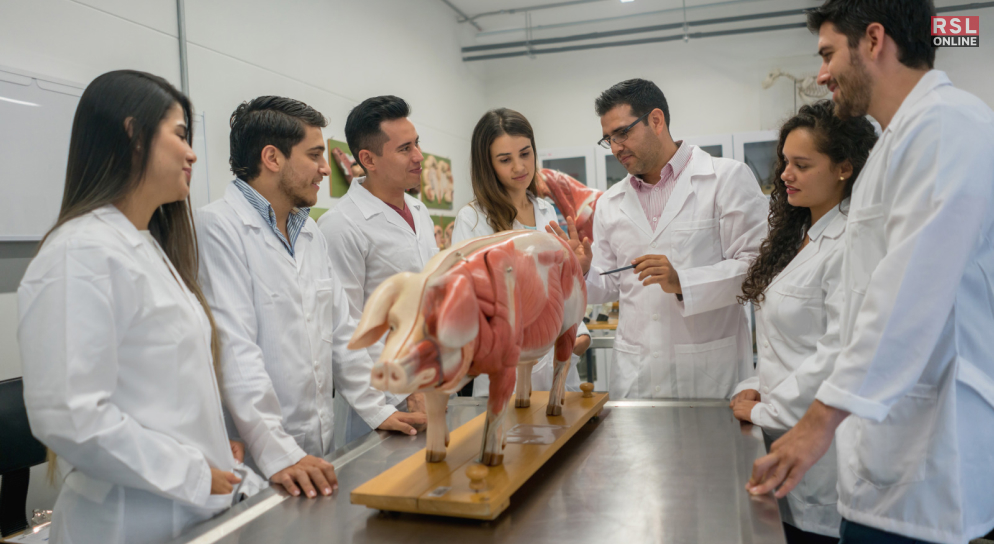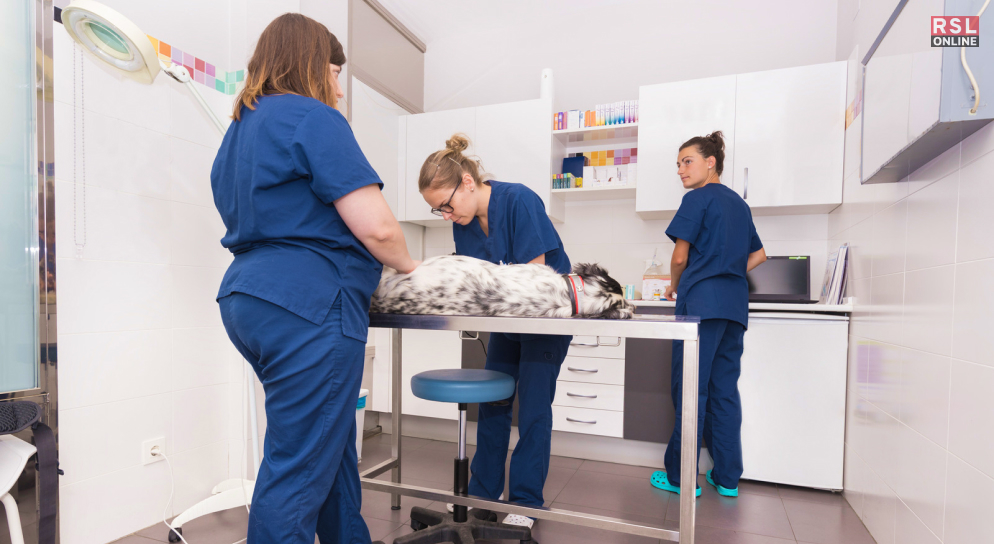A veterinary science degree prepares aspiring vets to be caring and competent in their medical practice. A veterinary degree is highly recommended for people who want to dedicate their lives to working with different animals.
Like any other medical program, veterinary science can also be quite vast and can have hectic schedules. A veterinary degree in the US or the Caribbean is usually divided into two major portions—basic sciences and clinical medicine.
The basic sciences deal with theoretical subjects and concepts and go into the depth of different veterinary disciplines. On the other hand, clinical medicine involves students learning animal care in a practical hospital or laboratory set-up.
You should have a basic knowledge of an average veterinary degree curriculum if you are looking for a suitable school of veterinary medicine in the US or Caribbean. Read ahead to learn more about the kinds of subjects you can expect to study at a veterinary college.
What Do Veterinary Science Students Have To Master To Obtain A Degree?
The students pursuing veterinary science have to study, learn, and master diverse areas to become complete professionals. We are discussing each one of them here.
1. Veterinary Anatomy:

This module can introduce you to basic anatomical concepts used in the animal world.
This can include anatomic terminologies, comparative gross anatomy, and directional terms. Common anatomical species that are studied include canine, equine, bovine, feline, and porcine.
The module will also help you understand the clinical importance of the anatomical structures and focus on the radiographic anatomy of the above-mentioned species.
2. Veterinary Histology and Embryology:
This module can focus on the basic concepts concerning the body tissues and organ systems of domestic animals.
You also learn more about the developmental anatomy of animal bodies, with a special focus on the study of chick and pig embryos. You also focus on the different types of developmental anomalies during this time.
3. Veterinary Physiology:
This subject involves the study of the cellular basis of animal physiology.
This can include basic neurophysiology, body systems, organ functions, hormonal systems, and the mammalian endocrine systems.
You would also study the reproductive development and cycles in different animals and the common physiological diseases and conditions in domestic and exotic animals.
4. Veterinary Immunology:
This subject can give you a broad understanding of the immunological systems in animals, including their innate and acquired immunity and their components.
The course can help you understand the functioning of animal body defense mechanisms at the cellular or molecular levels. You also learn about the role of defense host mechanisms and the creation of acquired immunity after an infection.
5. Veterinary Pharmacology:
This module covers the fundamental principles of pharmacokinetics, pharmacodynamics, and drug action in animals. Once you are done with the module, you will have gained the relevant expertise to make positive therapeutic or pharmacological choices for your animal patients.
You will also cover the legal, ethical, and regulatory issues affecting veterinary pharmacy.
Other common subjects include veterinary public health, veterinary microbiology, and veterinary pathology.
Gaining broad expertise in different subjects during vet school can give you the relevant skills necessary for a successful vet career.
Invest in a good veterinary program today to take your love for animals to a professional level.
The Top Universities In The World Where You Obtain A veterinary Science Degree

If you have decided to obtain a veterinary science degree, there are opportunities galore.
So far as the USA and Canada are concerned, you have nearly 30 veterinary universities in the USA. The majority of the universities are in the USA, and the rest are in Canada.
Are you looking to obtain a veterinary science degree in Canada? In that case, you can consider the University Of California Davis (UCD).
They have a high-quality infrastructure coupled with a highly experienced faculty.
Moreover, schools are spending millions on new medical facilities. Yes, it is definitely one of the seats of learning where you can earn a veterinary science degree.
In Canada, you have the University of Guelph, which provides the best learning facilities. Researchers at the university conduct various studies on animal and environmental health. Other great universities where you can attain a veterinary science degree include the University de Montreal, the University of Calgary, the University of Alberta, and others.
The University of Sydney is one of the leading places where you can opt for a science degree in veterinary medicine.
Other than this, there are many other universities in the world that offer veterinary science degrees, including the University of Melbourne, Universidade de Sao Paulo, and others.
Additional Reading:




























